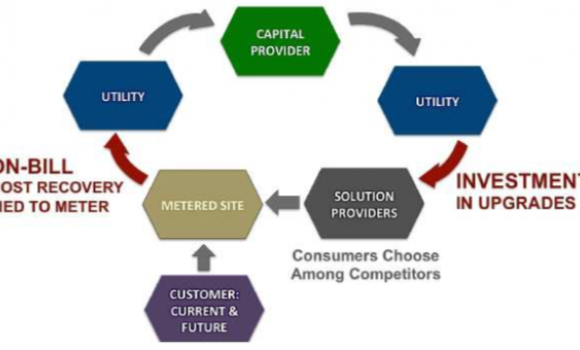
Great report from Rory McIlmoil of Appalachian Voices on electric co-ops in North Carolina. The report is written in response to a draft Clean Energy Plan for NC, but a lot of the analysis and recommendations for better outcomes on efficiency, solar, fixed fees, and more at RECs, are likely applicable in other states—though we know there are co-ops like Roanoke in NC and others who are leading on efficiency and solar. Here's a quote from the Executive Summary; I've attached the full comments, and they're available here: http://appvoices.org/resources/energy-democracy/AppVoices_CEP_Comments.pdf
"As detailed in this document, the fundamental problems that have resulted in rural communities across North Carolina largely being left out of the benefits of the clean energy growth in North Carolina over the past decade include, but are not limited to, the following:
- While electric cooperatives enjoy monopoly control over the sale of electricity in their respective service areas, the state has effectively deregulated these utilities (which were only partially regulated to begin with), leaving the regulation and oversight of the cooperative’s governance, rates and rate structures, renewable energy policies, and investments up to the cooperative boards of directors.
- The deregulation of electric cooperatives was based on the false notion that, because members of electric cooperatives elect their boards of directors, which in turn hire management and set policies for the cooperative, members effectively regulate their cooperatives. However, in practice, North Carolina’s electric cooperatives actively suppress member participation in decision-making through various means (see the section on electric cooperative governance), withhold information to members that would be necessary for members to play an active and informed role in key decision-making, and experience less than ten percent of members participating in board elections, which in many cases involve one or more sitting directors running unopposed. As a result, and given that electric cooperative members have no path for redress of violations or grievances through the state, harmful policies and practices employed by electric cooperatives continue unabated.
- Key renewable energy policies enacted in the state have either allowed electric cooperatives to do the bare minimum to comply – such as with the Renewable Energy and Energy Efficiency Portfolio Standard, or have exempted cooperatives from having to comply altogether – such as with the Competitive Energy Solutions for North Carolina Act of 2017. As a result, rural communities have largely been left out of the benefits of public energy policy that could have stabilized and lowered energy costs, created jobs, generated new local tax revenues and improved the quality of life for rural communities."

